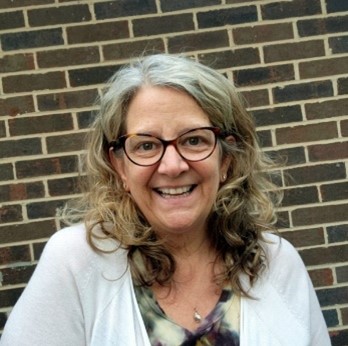OER User Story: An Interview Featuring Dr. Angela Hooser

Dr. Angela Hooser
1, Introduce yourself to our blog readers.
Hi! I am Angela Hooser, and I am a faculty member in the Department of Elementary and Special Education in the College of Education at MTSU. I graduated from the University of Florida (Go Gators!) with my PhD in Curriculum and Instruction with a focus on teacher education and social foundations. I am passionate about supporting educators as they learn from school contexts. In addition to teaching qualitative and action research with graduate level educators, I teach an Introduction to Education course for potential Early Childhood, Elementary, Special Education and Middle Level teachers.
2. Tell us about your choice to use OER in your discipline and/or courses.
I have been working over the last few years to redesign an Introduction to Education course. This course is part social foundations and examines schools as historical and sociopolitical institutions, and part teaching foundations and explores effective teaching and management practices. I came to use OER a bit accidentally. I located resources through google searches and had begun to replace expensive texts with pieces of different OERs. I then connected with support at MTSU and realized that I could create my own OER that aligned with course objectives. The use of OER resources has allowed for diverse perspectives and intersectional identities to be embedded seamlessly within the course. I believe that OER can, and should, be wielded as a tool to allow future educators to envision themselves as teaching professionals while also inviting critical reflection on political, economic, and racial tensions in schools historically and currently. This permits our future teachers to see how they can impact students and the larger society from their position as informed advocated for education.
3. Tell us about your students’ experiences with OER.
Students benefit from free access to course materials available to them from the first day of class to the day they graduate and beyond. The OER text and resources in the Introduction to Education Course include the ability to download as a PDF, E-Reader, or print copy. I modeled how to access the different versions of the text, navigate the online resources, and connect with embedded materials. Intentionally supporting student use of OER is needed as it is different than a traditional textbook. I share with my students what OER means to me, and my goals for developing accessible resources that reflect the diversity in the class. My students also know that the OER text including videos and podcasts as well as the interactive resources (e.g., flashcards, crossword puzzles, open responses) are adaptable. I check-in and ask for feedback on what resonates with them and what fails to connect. And I make changes as needed. This empowers students to have a voice in the curriculum of the course. Overall, the use of OER has allowed me to develop a strong classroom community and lead a course that is coherent from the texts they read, to the assignments they engage in both within and outside of class.
4. OER Recommendations
I am still learning about all things OER! MTSU has great resources to help. We are fortunate in this area, as despite the focus in Tennessee on OER, other institutions do not always have the human support resources that are available for Blue Raider employees. Beyond MTSU, my first steps when exploring materials include OER Commons, Lumen Learning, and Pressbooks. I have also found the OER Course Library an interesting place to peruse as it includes entire Community College pathways dedicated to the use of OER. Finally, https://oasis.geneseo.edu/ OASIS is a unique site that allows you to search textbooks but also podcasts and visual materials, simulations, learning objectives and more.
5. Future of OER at MTSU
I see the use and support of OER increasing at MTSU. I also believe that this increase will be mirrored by the state of Tennessee, which can only position MTSU as a leader in the use of OER.


